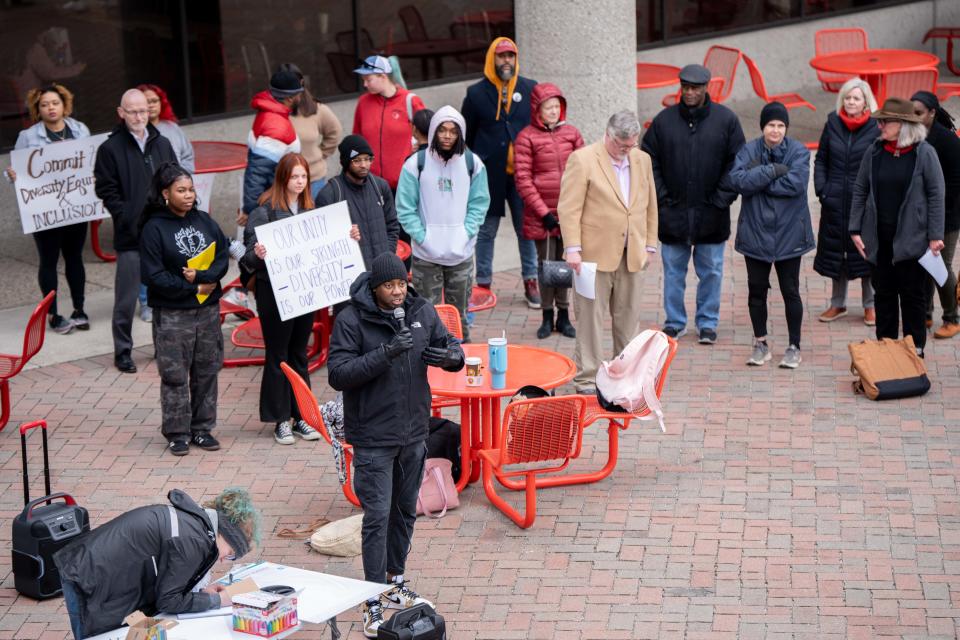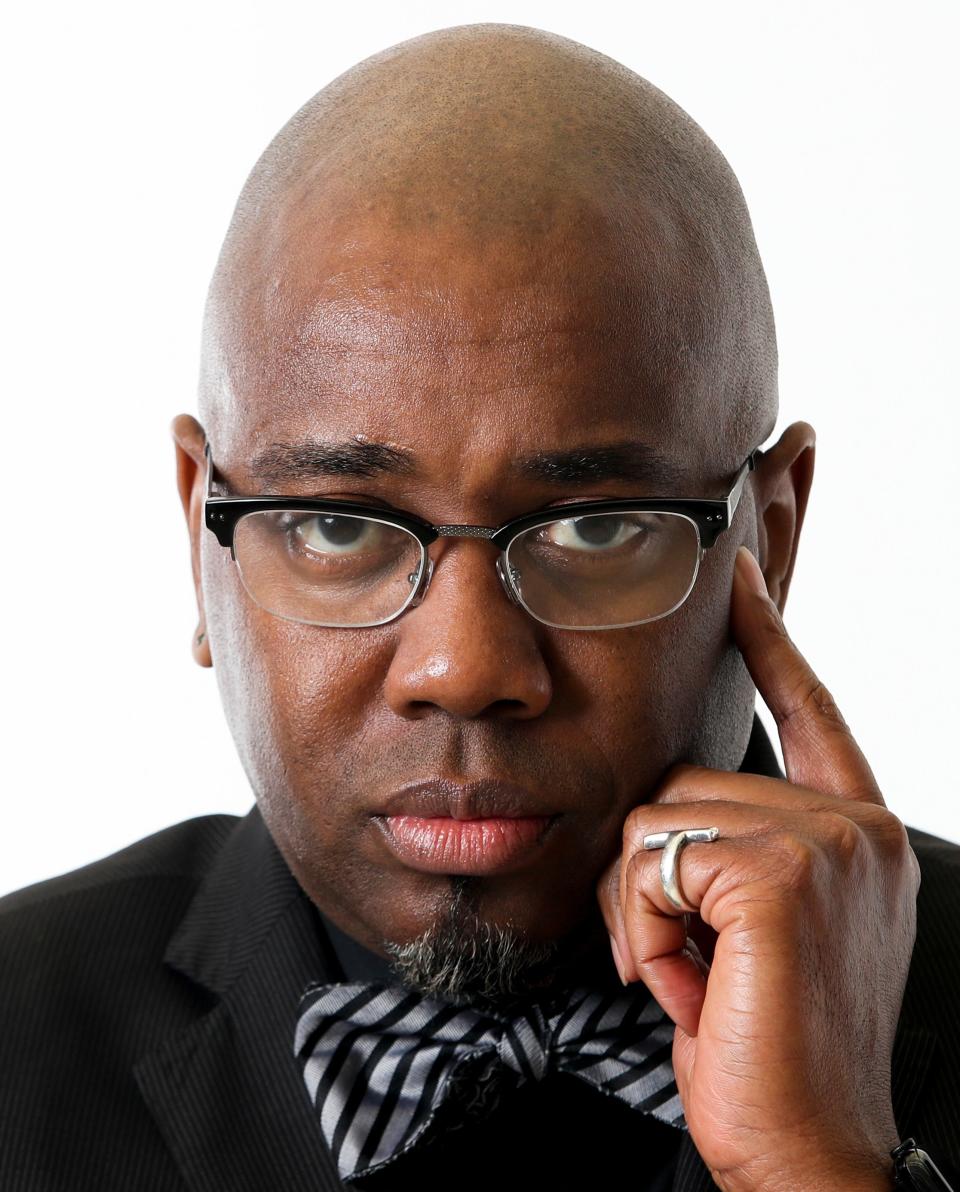What would Martin Luther King, Jr. think of America 56 years after his assassination?
- Oops!Something went wrong.Please try again later.
- Oops!Something went wrong.Please try again later.
“All of the healers have been killed or betrayed.” – Gil Scott-Heron, “Winter in America”
By 1968, Martin Luther King, Jr. was flailing. Like W.E.B. DuBois, Paul Robeson, and others he had been abandoned by many leaders of the NAACP and other Black legacy organizations. He was still hounded by the U.S. government as J. Edgar Hoover and COINTELPRO continued efforts to destroy Black leaders and resistance to racial inequality. He was struggling to hold together his own coalition of lieutenants like Ralph Abernathy, Jesse Jackson, Andrew Young, Hosea Williams and others, who all quickly went their separate ways after King’s death.
King hadn’t had a major victory in years and his popularity had plummeted. As he neared death, almost 75% of Americans disapproved of him, labeling him a race-baiting troublemaker. Painfully for him, even a majority of Black people didn’t support him. Those closest to King wondered how he could go on as he tumbled into depression.
The immediate past provided no encouragement in 1968. Medgar Evers had been shot to death in his Jackson, Mississippi driveway in June 1963. King’s simultaneous rival and comrade Malcolm X was murdered just over a year and a half later in New York. The Black Power Movement had been born a few years earlier and its leaders were already targeted, persecuted and, at times, marked for death.
More Ricky Jones: Yes, Black athletes should disrupt March Madness in defense of diversity. They won’t.
W.E.B. DuBois, one Black America’s greatest intellectuals, had given up 7 years earlier. He wrote to his friend Grace Goens in September of 1961, “I just cannot take any more of this country’s treatment. Chin up, and fight on, but realize that American Negroes can’t win.” DuBois left for Ghana the next month and never returned. He died the day before the 1963 March on Washington, a mere two months after Evers.
King’s 13 years on the frontlines of America’s Civil Rights War ended when he was murdered in Memphis, Tennessee on April 4, 1968. He was only 39 years old.

King did not live to see racist anti-Black politicians and pundits misuse his words arguing people should “not be judged by the color of their skin, but the content of their character” to oppose Black progress. He did not live to see the Civil Rights Act of 1964 for which he fought for so fiercely weaponized by the U.S. Supreme Court and attorneys general like Kentucky’s Russell Coleman to justify the legal destruction of affirmative action, diversity initiatives, and set the fight for racial equality back decades. King did not live to see the Voting Rights of 1965 of which he was so proud gutted and rendered little more than a “dead letter” by the Shelby County v. Holder ruling in 2013. Since then, racial voting disparities in America have increased exponentially.
King was a brave man born out of the Black radical tradition
King did not live to see cowardly Black free-riders (not Freedom Riders) who will not open their mouths in defense of their people benefit from his sacrifice and suffering. He did not live long enough to see the Ward Connerlys, Clarence Thomases, Candace Owens and Daniel Camerons of the world. He didn’t live to see Tim Scott skinning, grinning, and genuflecting before Donald Trump as he bastardized the words of Fannie Lou Hamer. He did not live long enough to see a Black man running for governor of North Carolina proudly proclaim that Black people owe America reparations. Nor did King live long enough to see a Black president or the unrelenting white backlash that has followed him.
Listen up, Louisville. Mattie Jones has advice for today's racial justice leaders.
The searing truth-telling writer James Baldwin didn’t see most of it either. He outlived King by 21 years, eventually dying in 1987 during the racial onslaught of the Reagan era. He was only 63. For those decades, Baldwin was the one left behind. He lived long enough to bear witness to the grief, pain, and white retribution that followed his friends’ murders. What Baldwin saw was neither pretty nor encouraging. He damningly reflects on America in Raoul Peck’s Oscar-nominated documentary I am not your Negro, “I’m terrified at the moral apathy – the death of the heart which is happening in my country. These people have deluded themselves for so long that they really don’t think I’m human. I base this on their conduct, not on what they say. And this means that they have become, in themselves, moral monsters.”
Current political and social anti-Blackness has grown more and more brazen in America and, unfortunately, there are no Kings or Baldwins left to fight it. What would Baldwin, King, and their fellow warriors think of America today? The “Christina Lee Brown Envirome Institute’s Baldwin-King Project,” which I founded, will wrestle with that question on the 56th anniversary of King’s death on Thursday, April 4th at Roots 101 African American Museum in Louisville, Kentucky at 5 pm. We hope you will join us! I encourage you to REGISTER FOR THIS FREE EVENT HERE.

Dr. Ricky L. Jones is the Baldwin-King Scholar-in-Residence at the Christina Lee Brown Envirome Institute and Professor of Pan-African Studies, University of Louisville. His column appears bi-weekly in the Courier-Journal. Follow him on Facebook, LinkedIn, Threads, and X.
This article originally appeared on Louisville Courier Journal: MLK was assassinated 56 years ago. What would he think of America now?

